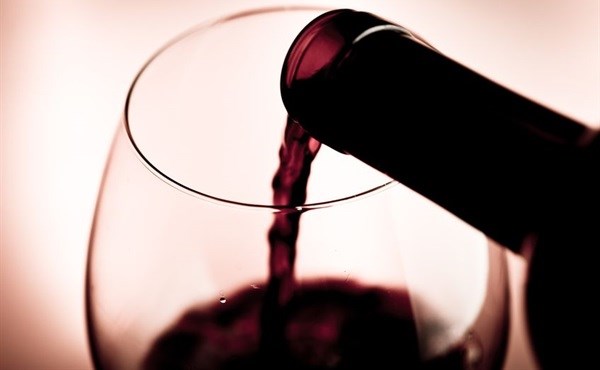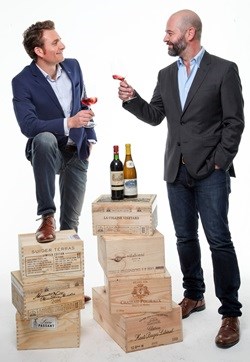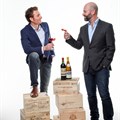Stellenbosch Cabernet Sauvignon is 'wine futures' worthy

Bordeaux has long offered their top wines en primeur, providing an efficient system for communicating the merits of the vintage and distributing their wines around the world. Every year wine professionals and merchants from across the globe flock to the region for the opening of the wine futures campaign, to taste barrel samples of the previous year's harvest.
A similar event was held in Johannesburg recently with a focus on the 2015 Stellenbosch Cabernet Sauvignon - regarded as the "greatest modern day vintage" by some experts. Twenty-four Stellenbosch winemakers, including Kleine Zalze, Delaire Graff, Waterford and Glenelly - showcased their 2015 Cabernet Sauvignons en primeur style.
Following the event, Wine Cellar Fine Wine Merchants, which has been offering Bordeaux en primeur for over a decade, sold the 2015 Stellenbosch Cabernet Sauvignon en primeur for the first time – offering an approximate 10% discount on the future release price, or ‘farm price’.
We chatted to Roland Peens, director of Wine Cellar Fine Wine Merchants, who explains the benefits of the wine futures model, why he believes 2015 Stellenbosch Cabernet Sauvignon should be taken more seriously and how the local wine market is evolving in response to international demand.

For the uninitiated, explain how the concept of ‘wine futures’ or en primeur works?
En primeur is the French word meaning ‘newly produced and made available’, also commonly known as ‘wine futures’. These terms refer to the sale of the recent vintage before it’s released. Bordeaux has offered their top wines en primeur for over two centuries, but became more speculative from the great 1961 vintage.
How does the model benefit both customers and businesses involved in the supply chain?
Bordeaux en primeur provides an efficient system to sell over 500 different wines from one vintage at the same time. Therefore the customer doesn’t have to worry about the different release dates of each chateau. It is also the first opportunity and the lowest price available. Bordeaux is also able to communicate the merits of the vintage and distribute their wines around the world in one campaign.
As a company that has been offering Bordeaux en primeur for over a decade now, what is the general response to the offering from your market?
Wine Cellar has been offering Bordeaux en primeur since 2002 and has recently offered the fine 2016 vintage. It is, of course, a very small market, but in top vintages we can fill a container of pre-orders of the finest Bordeaux. Bordeaux is still the world's luxury red wine and has the best reputation for ageing and investment.
Wine Cellar for the first time applied the wine futures concept to Stellenbosch Cabernet Sauvignon 2015. Tell us more about this move…
Stellenbosch is South Africa’s foremost wine region and Cabernet Sauvignon is king! With the first event 'Stellenbosch Cabernet – The Collection' held in Johannesburg in June, the consumer had the opportunity to taste the exceptional 2015 vintage at this early stage. Wine Cellar offered to sell the wines en primeur and be the important merchant communicating, handling and distributing the wines. The sale of these en primeur wines was on offer on the Wine Cellar website until Wednesday, 19 July.
Stellenbosch Cabernet Sauvignon needs to be taken more seriously; it is world class, underpriced and can age beautifully!
Your brand has built strong relationships with an array of producers both locally and abroad. Which elements would you say are key to profitable relationship building in your line of business?
Much like all industries and businesses, the consumer seeks value and trust in order to keep coming back. Many wines take two decades to mature and naturally demands a long relationship with the customer. Wine Cellar aspires to offer value at every price point and never offers a wine that we don’t believe in. Trust is of course very important for en-primeur, as it takes up to two years for delivery once the wine is purchased!
Considering that you’ve been in the wine business for over a decade, can you share any interesting South African consumer trends that you’ve picked up?
The South African wine industry is still rather immature when compared to the fine wine regions of the world. As we develop, our wines are getting better at each price point. Specifically, local and international demand for our top wines has surged over the last five years.
There is a trend therefore of our top wines becoming more expensive and pushing away from the every-day drinking wines. The consumer needs to understand that a bottle of mass-produced, Tuesday night Sauvignon Blanc is a completely different product to a single vineyard, old vine Chenin that produces a mere barrel or two of exquisite wine!
Shop Wine Cellar products online and connect with the brand on Facebook, Twitter and Instagram.
About Lauren Hartzenberg
- Celebrating African creativity: Lucky Star and Chepa Streetwear collab on Phatsimo collection - 7 Jun 2023
- PayJustNow's CEO on the benefits of 'buy now pay later' for consumers and businesses - 6 Jun 2023
- #YouthMonth: Glow getter Ayanda Majola talks Yanda Cosmetics venture - 2 Jun 2023
- SA retailers and consumers count the costs of a collapsing state - 1 Jun 2023
- Jane Wurwand's journey building the Dermalogica skincare empire - 22 May 2023
View my profile and articles...
